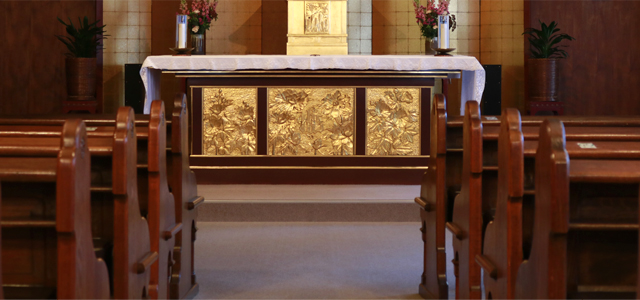
Catholic Q&A
It is not misogynistic to say that women cannot be ordained in the Catholic Church?
I find this query rather distressing. In modern times, feminism and women’s liberation movements are being voiced aloud in numerous parts of the world, and women have become active in varied fields of society. The fact that specific positions or roles have not been opened out to women, appears outmoded. So why does the Catholic Church limit its clergy to men? I think it would be fair to say that this is probably the way history has turned out.
Jesus valued women to such an extent that it was considered odd in the Jewish society of his time. Unlike the Jewish teachers he accepted women as his disciples, and women ardently cooperated in His missionary work. The Gospels inform us that when Jesus was arrested his male disciples fled, but the women followed him all the way to the foot of the cross, and on the morning of his resurrection, he first revealed his glorious form to the women. His attitude to women was so progressive, that one might say it was revolutionary in the world of his time.
Women were also active in the primitive Christian Church. They reflected this way of life of Jesus, and also played a major role in Paul’s missionary work. It appears as though women occupied positions like that of teachers and prophets in many Christian communities. Of course, these were charismatic positions, and it was not a legislated system.
If the later Church had retained the spirit of the primitive Church all along, Church history would have witnessed a vastly different development. However, I am of the view that for the Church to develop within the Hellenistic world, it had no choice but to accept the ideas and customs of that society, regardless of whether they were good or bad. Roughly around the middle of the second century the three levels of office, namely those of bishop, priest, and deacon began to steadily get rooted within the Church. As an institution the positions were naturally limited to men, since that was the custom in those days.
Hence, the creation of the Church system was perhaps a historical coincidence. The fact that the clergy is limited to males is not due to any eternal and immutable divine law. When we consider theologically the nature of the priestly office, there is no necessity for it to be limited to males. In fact, in Anglican and Protestant Churches, female priests and ministers are very active. Since the Catholic Church places a very high value on tradition, customs and habits cannot be changed overnight. However, what about the future? Changes perhaps might arise in the near future.
Actually however, I would like more women to be aware of this issue in the Japanese Church. Indeed, on considering the members of our congregations, we find that women are in awesomely larger numbers. Many are in positions of leadership, and Sisters in particular are more active than their male counterparts in a variety of evangelical ministries. Yet, when it comes to the field of theology, which is essential for the future orientation of the Church, we see that the activity of women is rarely visible. Was it the Church tradition we had so far that was responsible for giving rise to a situation like this? While there are indeed many women who attend courses on theology, yet one rarely finds them going a step further and participating in academic conferences, or engaging in academic-level theological research and teaching. This is in truth a pity. At any rate though, I believe that if we wish to reform the Church, there first needs to be a change of mindset from within.
